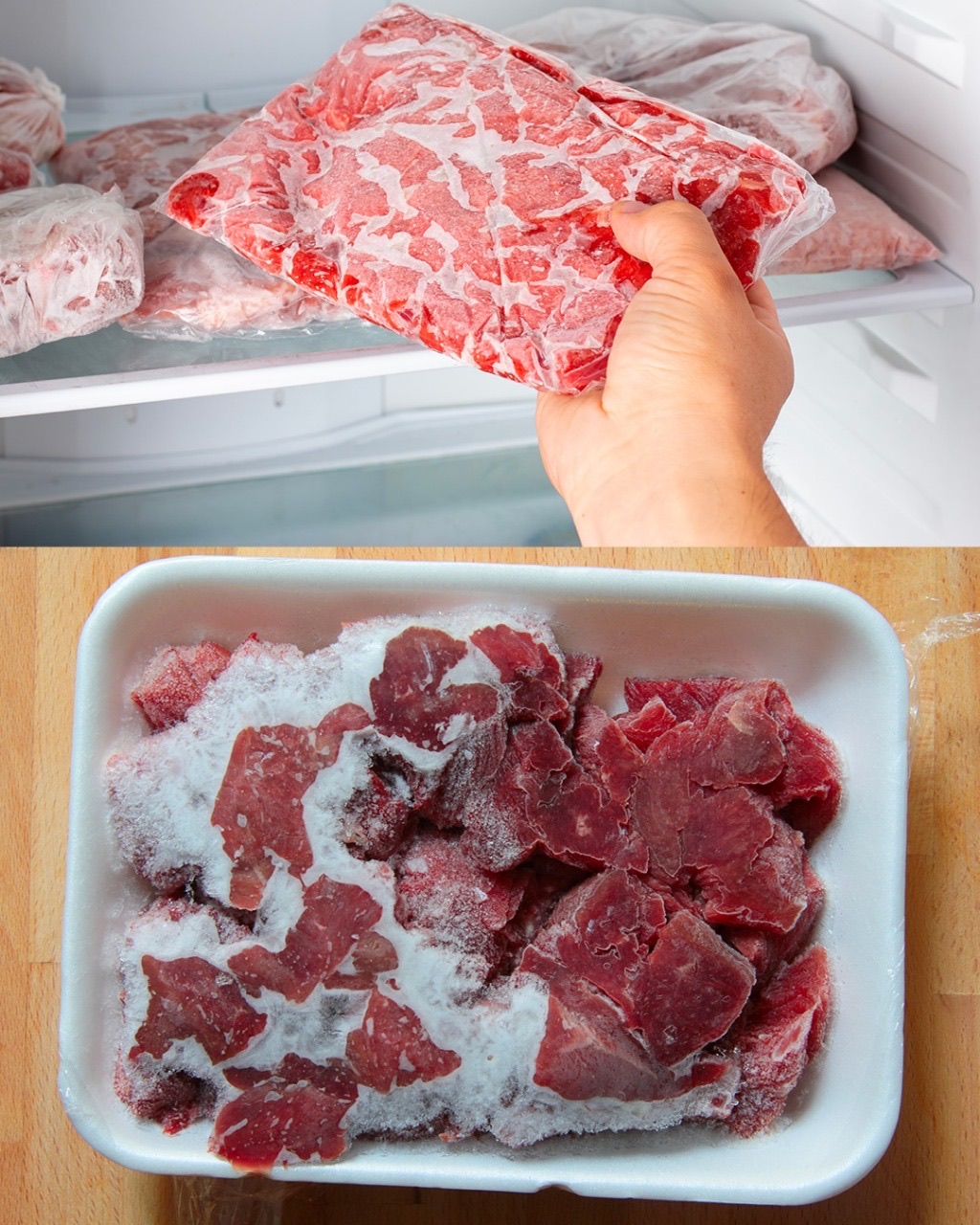ADVERTISEMENT
The shelf life of the freezer varies depending on the type of food and storage conditions. Freezing food is an effective way to prolong their shelf life, but it doesn’t make them eternal. Over time, frozen foods can also lose quality, flavor and, in some cases, can develop freezing burns. Here is a general guide on the duration of some common foods when stored properly in the freezer:
1. Raw meat
Raw meat, once frozen, has a variable duration depending on the type. For large and whole cuts of beef, lamb or pork, the freezer can preserve the quality up to 6-12 months. Raw chicken and turkey can last between 9 and 12 months, ensuring they remain safe and tasty. However, when it comes to ground meat (both beef and poultry), the weather is reduced to about 3-4 months, as the ground parts tend to deteriorate more quickly even at low temperatures.
2. Seafood and Fish
Frozen fish and seafood have a variable duration depending on the type and fat content. Lean fish, such as cod, sole or whiting, can maintain its quality in the freezer for a period of 6-8 months. Fatty fish, such as salmon or tuna, lasts shorter, usually between 2 and 3 months, as fats tend to run more quickly even at low temperatures. As for seafood, crustaceans such as shrimps, crabs and lobsters can last from 3 to 6 months, while molluscs, such as mussels and clams, are well preserved for about 2-4 months.
3. Verdures
Frozen vegetables, if prepared properly, can last in the freezer up to 8-12 months while maintaining a good quality. Most vegetables, such as spinach, broccoli, carrots, green beans and peas, retain the flavor and texture well when it is grazed briefly (process called bleaching) before it is frozen. This step helps to preserve the color and keep vitamins intact, while reducing the likelihood of persistence loss. Some vegetables, such as tomatoes, can be frozen raw, but their duration is shorter, usually between 2 and 3 months, and are best suited to be used in sauces or soups once thawed. Potatoes and other vegetables rich in starch, if cooked before being frozen, can last up to 10-12 months.
4. Dairy products and other products
Dairy products can be frozen, but their durability and quality vary greatly depending on the type. The butter, for example, is stored well in the freezer for about 6-9 months and maintains its flavor and consistency if wrapped correctly. Hard cheeses, such as Parmesan cheese or pecorino cheese, can last up to 6 months, especially if grated before being frozen. However, soft cheeses (such as brie or camembert) and fresh cheeses (such as mozzarella) are not ideal for freezing, as their texture and flavor can change drastically. Milk and cream can be frozen for about 3 months, but it is possible for them to separate during the process; they can still be used for cooking or preparing sweets, although they may no longer be suitable for direct consumption. Yogurt and fermented dairy products, on the other hand, do not react well to freezing, as they tend to separate and lose consistency.
X tips to extend the life of food in the freezer
ADVERTISEMENT
